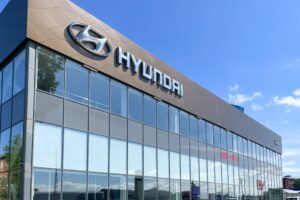In the meantime, the company once again saw triple-digit revenue and earnings growth.
Over the past few years, Nvidia (NVDA 1.51%) has been one of the hottest stocks, thanks to its astronomical growth. However, the stock fell after the chipmaker announced its fiscal second quarter earnings last week, despite incredible growth that surpassed analysts’ expectations. The market wasn’t impressed.
Let’s take a closer look at the company’s latest quarterly results and the one risk that appears to be weighing on investors’ minds.
Outstanding revenue growth continues
For its fiscal second quarter, Nvidia saw sales soar 122% year over year to $30 billion. Adjusted earnings per share (EPS) came in at $0.68, up 152%. Now admittedly that was a slowdown from the 262% revenue growth and 461% adjusted EPS growth it saw in Q1, but still incredible growth.
Its data center business once again led the way with revenue surging 154% to $26.2 billion. The company credited its growth to its Hopper graphics processing unit (GPU) computing platform, and in the quarter in began ramping up its newest H200 Hopper chip.
Gross margins fell sequentially as Nvidia scaled up its new Blackwell chips, but still remained a robust 75.1%. That was down from 78.4% in Q1.
Nvidia is also generating an enormous amount of cash, with operating cash flow of $14.5 billion in the quarter. Free cash flow came in at $13.5 billion.
It ended the quarter with net cash and marketable securities of $26.3 billion. It also announced a new $50 billion share repurchase program.
Looking ahead, the company guided for Q3 revenue of $32.5 billion, led by Hopper growth and the shipping of samples of its new Blackwell architecture. It called demand for Blackwell “incredible” and said that the transition to its next-generation architecture will be smooth, with demand for both Hopper and Blackwell chips expected to remain strong.
Nvidia noted that it did have to make a change to Blackwell to improve production yields but that it expects production to ramp up in the fourth quarter. It said no functional changes were necessary. Last quarter, it indicated production would ramp up in Q3. It is now expecting to recognize several billion dollars in Blackwell revenue in Q4. This is good news and assuages fears that there could have been a longer delay.
It predicted that its data center business would continue to grow strong into next year and beyond. It noted that computing power for next-generation large language models (LLMs) would require 10 to even 40 times the computing power as the prior generation and that the need for more and more computing power would persist.

Image source: Getty Images.
Is now the time to buy the stock?
Despite its spectacular growth, robust gross margins, and opportunities in front of it, Nvidia trades at a relatively modest valuation, with a forward price-to-earnings ratio (P/E) of just 30 times next year’s analyst estimates.
Given the need for ever-increasing computing power to train more complex AI models and the spending large tech companies are doing to advance AI, Nvidia appears to still have a long runway of growth in front of it. Combine that with a very reasonable valuation, and the stock looks like a buy.
The one big risk the stock faces and the question on many investors’ minds is if all the spending on AI will result in a payoff for the companies doing the spending. Now, companies with cloud computing segments like Microsoft, Alphabet, and Amazon are seeing some benefits, and companies like Meta Platforms and Apple are also investing heavily in AI.
However, these benefits will also need to trickle down to software companies that are developing AI applications and their customers. Right now, a lot of money is being spent on AI infrastructure to the benefit of Nvidia, but there is still an ongoing debate as to whether other companies will see these investments pay off. If they do not, then the spending on AI infrastructure could ultimately slow down significantly.
So while Nvidia continues to look like a buy, the one thing investors should really monitor is if software company growth can begin to increase due to AI. If these companies do not begin seeing growth ramp up in the next year or so, that could be the proverbial canary in the coal mine regarding Nvidia’s valuation.
John Mackey, former CEO of Whole Foods Market, an Amazon subsidiary, is a member of The Motley Fool’s board of directors. Suzanne Frey, an executive at Alphabet, is a member of The Motley Fool’s board of directors. Randi Zuckerberg, a former director of market development and spokeswoman for Facebook and sister to Meta Platforms CEO Mark Zuckerberg, is a member of The Motley Fool’s board of directors. Geoffrey Seiler has positions in Alphabet. The Motley Fool has positions in and recommends Alphabet, Amazon, Apple, Meta Platforms, Microsoft, and Nvidia. The Motley Fool recommends the following options: long January 2026 $395 calls on Microsoft and short January 2026 $405 calls on Microsoft. The Motley Fool has a disclosure policy.





